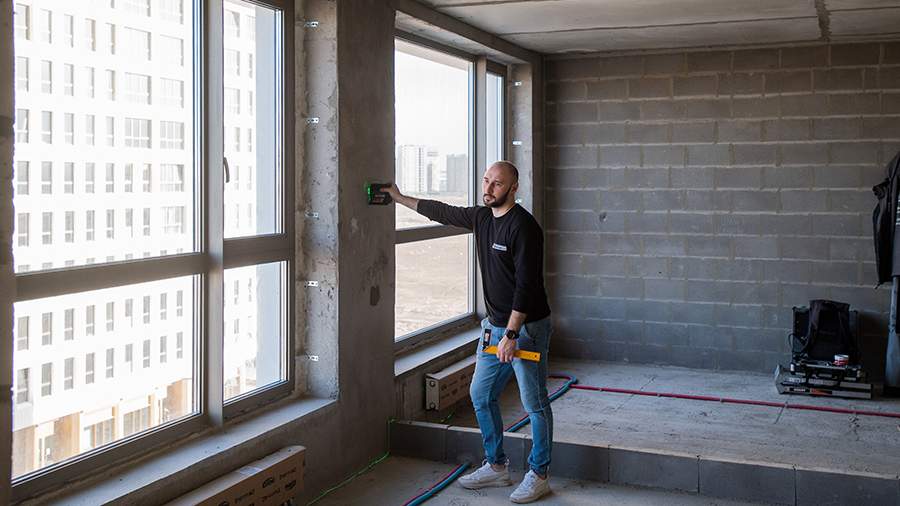Flipping is the purchase of a property with the aim of improving it and further reselling it for profit, explained real estate expert, founder of the Trend House real estate agency Ksenia Avers. She told Izvestia about the features and risks of such an investment strategy.
“Private investors are engaged in flipping, and some manage to do flipping without such improvements. That is, their task is to buy as cheaply as possible and sell as expensively as possible,” the expert noted.
According to her, many such buyers take advantage of the market gap in prices, because secondary housing from primary housing can differ in cost by up to 40%. Sometimes people don’t want to buy a secondary apartment because it is often in poor condition. Flippers, on the other hand, buy an apartment in terrible condition on the secondary market, make the most budget-friendly renovations using cheap materials, and then resell the home.
According to Avers, with such a strategy it is advisable to purchase housing with a mortgage, that is, with a minimum contribution of your own funds. The rest of the money will only be needed for repairs in the future.
“The main thing is to take out all the old stuff, put in fresh laminate, just peel off the wallpaper, paint the walls, install the cheapest kitchen possible. Such repairs cost, for example, 1–1.5 million rubles in a Moscow apartment for flippers. While renovations for yourself in such an apartment would cost 5 million rubles if everything was made from high-quality materials. This is actually where flippers make money. Their task is to make a beautiful picture in any apartment and sell it,” said the real estate expert.
She clarified that the first task of a flipper is to find the cheapest apartment, and it is often cheap due to the fact that, for example, there are problems with documents. However, you can make money on resale, the expert added.
Avers drew attention to the fact that flippers are usually either apartment designers who have done a lot of renovations and have expertise in this matter, or realtors who simply find good options and understand how much they cost on the market.
“Let's talk about risks. Firstly, the cheapest objects are problematic ones. That is, there are either problems with the documents, or there are some controversial situations, for example, with court cases, with the bankruptcies of previous owners, in general, some urgent sales. And this problem may arise for the buyer over the next three years. That is, you need to buy such apartments very carefully, and check all the documents much more carefully than an apartment where, for example, there has been one owner for the last 15 years,” she explained.
She advised buyers who have noticed that the apartment has changed owners in recent years to be sure to check the documents with professional lawyers who specialize in real estate transactions.
“The second risk with such repairs is the lack of any projects. Nobody calculates, for example, the load on electrical networks, if they change them at all. <…> It is also unclear which workers and with what qualifications are doing these repairs,” Avers noted.
The expert added that if people buy a new apartment, where the owner has recently changed, and cosmetic repairs have been previously made, then this is probably a flipping property. Therefore, when purchasing a home, it is worth contacting a lawyer and consulting with a foreman-engineer to find out the quality of the work carried out on the premises.
“But for those who want to take up flipping, there are also risks. The real estate market is currently in a slump. There is no guarantee that a person will now buy an apartment for 10 million rubles, invest another million in renovations, and while he is renovating and selling, the price of the apartment will not drop to 7 million rubles. That is, for a flipper, you can miscalculate the market, get caught in a price correction and still own this apartment and pay the mortgage for it for a very long time,” concluded Avers.
Earlier, on January 3, the managing director of the Metrium company, Ruslan Syrtsov, told Izvestia that in Russia at the beginning of 2024, the cost of apartments in new buildings in the mass segment and business class may decrease. He also suggested that secondary housing would gradually become cheaper.
#expert #spoke #features #risks #flipping #real #estate

Leave a Reply